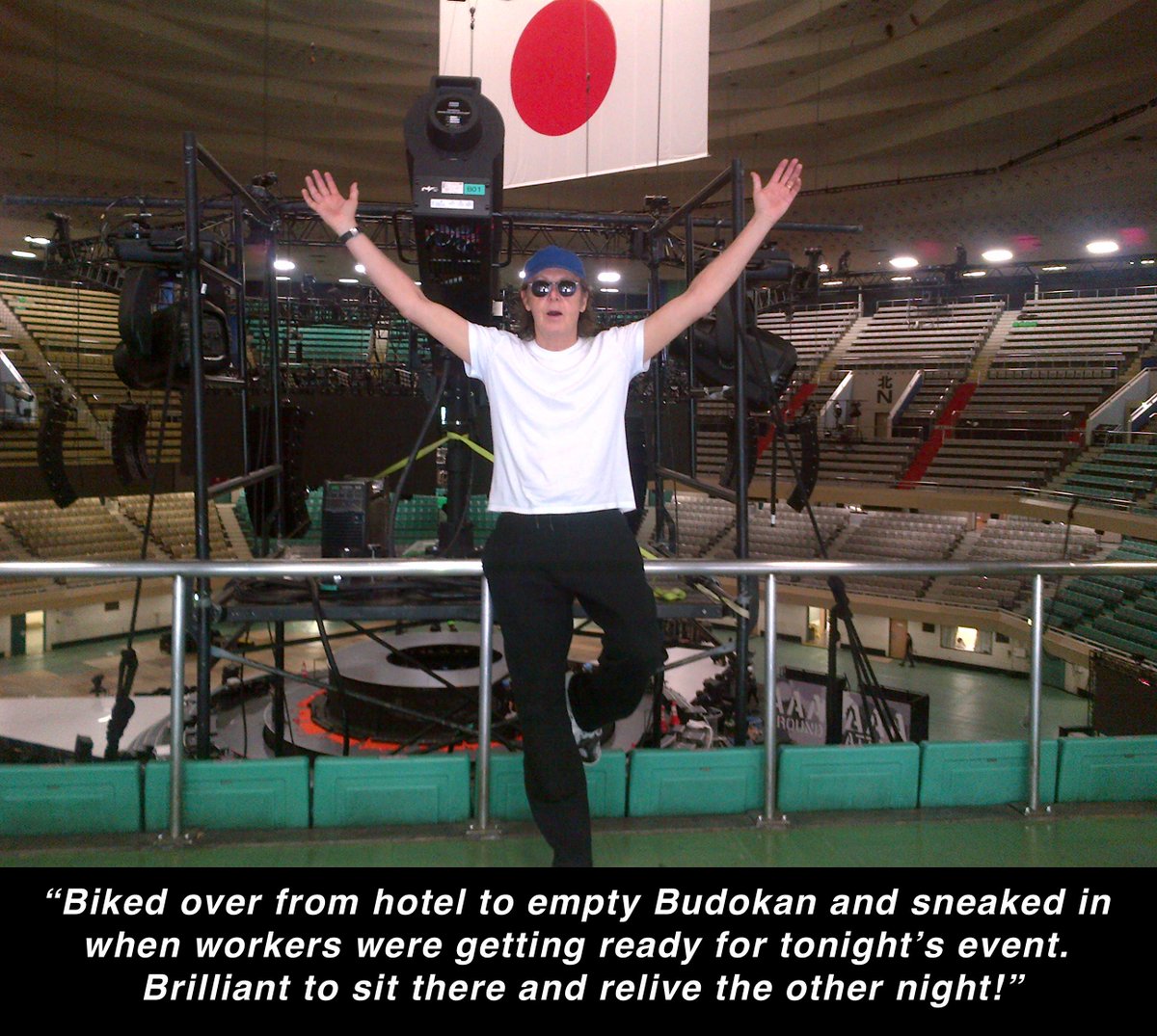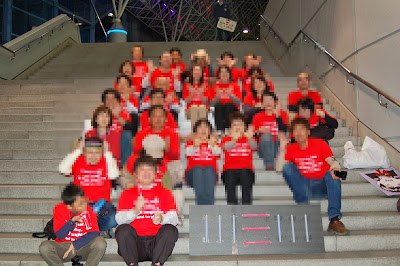Background
Budokan, the hall for Japanese martial arts in Tokyo, has special meaning for beatlemaniacs in Japan. It was the place of the first and the last concert of the Beatles in Japan, in 1966. Some Japanese old men criticized, "The foreigner pop stars use the holy place of Japanese traditional sports", however the administrator of Budokan admitted the Beatles to play in the hall. (Actually, at that time Budokan was the largest hall in Japan, and it was suitable for accommodating a big audience)
In 1975, Paul McCartney was scheduled to play there but the Japanese Ministry of Justice banned his entry to Japan. In 1980, Paul entered Japanese Customs for his concert at Budokan but he was arrested for cannabis possession. In 1990, 1993, 2002 and 2013 he played his music in Japan but not at Budokan. He finally released his plan to play at Budokan in 2014, however, he canceled all his concerts in Japan and Korea because of his sudden viral inflammation.
Such history makes this day so special - Paul sings his songs for the first time in 49 years after many incidents.
The Iconic Venue
Wating for the Show to begin
Yes, it is special even before starting. My music lover friend who has been to Budokan over decades said, "This is my first experience to see such big crowd surrounding Budokan four hours before the concert." The crowd is waiting for Paul to come.
The place around Budokan is also like the place of "the reunion party". Many beatlemaniac friends of mine from all over Japan gather here. What's more, I meet a Korean beatlemaniac friend. I enjoyed renewing my friendship. It also makes today more special.
After waiting in a long line, at last I enter Budokan.
All of the audience members find a small device and a explanation sheet on their own seats. The sheet says "Turn on and have this wrist band. This is a surprise for Paul McCartney-san. Thank you for your cooperation from Kyodo Tokyo (promoter) and The Beatles Club (fanclub)" What is this?
Sitting in the stands of Budokan, we are waiting for the show to begin.
Concert
Paul appears on stage.
The first song is, surprisingly, "Can't Buy Me Love". It is different from the other concerts of this present tour. This fact makes us feel impressed. We guess that Paul also might think this gig is special.
Not only the song selection but also other factors make this concert feel exceptional. Obviously Paul is surprised at our eagerness and passion. I realize that from his reactions - his talking on stage, guitar playing and singing. It's different from other concerts. In other concerts, he used many Japanese messages on stage with prepared scenario, but maybe he now talks with his unprepared messages and he concentrates on his music performance.
Our presumption is that "Paul feels this concert is special" turns out to be true when he says "Sekai-hatsu! (The first in the world)" and plays "Another Girl". Yes, it's the first performance! Big surprises from him!
After that, when Paul plays the piano for "Let it Be", suddenly all audience's wrist band light.
Paul seems to be surprised by this. It could be seen on his face. Our turn now.
Our wristbands become more colorful and audience becomes more excited.
Our wristbands show the Japanese flag and the Union Jack.
(photo by Mr. I. Yamano)
In response to us, Paul and his band members are gaining steam.
On the last track, the wristbands change their color every second and Paul, and his band and audience are reaching the high point of this gig.
Paul's face at the last moment of his playing.
The show ends. Paul says "This was the Legendary Night!"
After the show
With my beatlemaniac friends, we talk over this "Legendary Night" till midnight
Newspapers.
My impsession
This show reminds me of a scene in the movie "13 days", which described the Cuban Missile Crisis in 1962. When the US tried to impose a naval blockade against Cuba, the Secretary of Defense Robert McNamara said; "This, all this, is language, a new vocabulary the likes of which the world has never seen. This is President Kennedy communicating with Secretary Khruschev."
Like that, Paul McCartney and Budokan audience were communicating together with no words but "new vocabularies" - music, airs of excitement and illuminating wristbands. It made the show unique.
In my opinion, all arts are also communications. Among them, This "Paul McCartney at Budokan" is the best art, aka communication.
Paul's action on the following day of the Budokan night is the symbol of our communication. He revisited Budokan. He must have been impacted from the Legendary night.
(quote from Paul's official Twitter)

It also reminds me of this lyrics of the Beatles song "The End", written by McCartney; And in the end, the Love You take is equal to the Love You make.














































